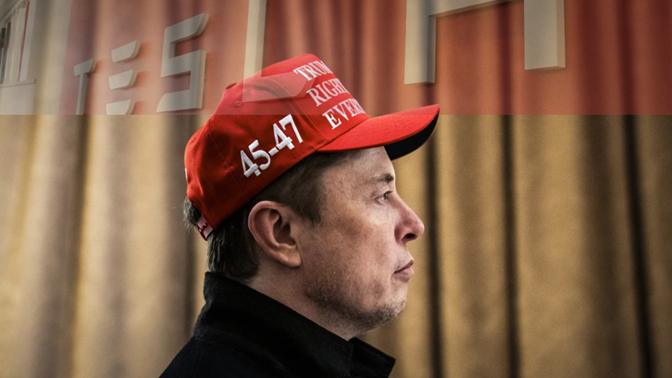It’s never a dull day in the world of Tesla. From market rollercoasters to political rants, and now, whispers that the company might be seeking a future without Elon Musk at the helm. Yep, you read that right — reports recently surfaced suggesting Tesla’s board considered finding a new CEO. Naturally, the rumor sent shockwaves through the EV world.

Although both Musk and Tesla denied the story, the fact that the discussion even made headlines reveals something deeper: Tesla’s leadership dynamic may be more fragile than it appears. Let’s break down what’s happening in Tesla-land — and why it’s sparking such intense speculation.
Did Tesla Really Consider Replacing Elon Musk?
According to the Wall Street Journal, Tesla’s board was quietly exploring CEO succession options. The reason? Falling sales, a damaged brand image, and a jaw-dropping 71% drop in year-over-year revenue.
Musk has recently focused more on politics than Tesla, spending time in Washington D.C. and making high-profile public statements. This didn’t sit well with investors — or some board members. The WSJ reported that the board had contacted executive search firms to quietly begin the process of finding a successor, though it’s unclear how far that effort went or if it’s still ongoing.
Apparently, the board even told Musk to publicly recommit to Tesla, which he did. During the company’s earnings call, he claimed he would now spend at least 60% — but no more than 80% — of his time on Tesla, reducing government involvement to just “a day or two per week.” But by then, the board may have already taken the first steps to look beyond Musk.
Tesla didn’t wait long to go on the defensive. Just after midnight on a Monday, both Musk and Tesla released statements denying the WSJ report. Robyn Denholm, Tesla’s board chair, called the claims “absolutely false.” Musk himself labeled it an “extremely bad breach of ethics,” insisting that the board had given a full denial before the story was even published.
However, skepticism lingers. Tesla has a history of denying rumors — only for them to come true later. Take the $25,000 EV that was supposedly cancelled: Tesla initially denied the report, but soon after confirmed it wouldn’t release the car unless it was a robotaxi. Similarly, rumors of Full Self-Driving trials in China were also denied — before rolling out months later.
Even if the board isn’t actively replacing Musk, changes in Tesla’s leadership have raised eyebrows. One major exit: Vineet Mehta, Tesla’s longtime head of battery architecture, who had been with the company since 2007. He was once considered a potential Musk successor. Now, like several other top engineers, he’s out.
Robyn Denholm herself has also come under scrutiny. While Tesla urges employees to hold onto stock, Denholm has reportedly sold most of her shares — cashing out over $600 million in stock compensation over the past decade. Coincidence? Maybe. But in an already tense atmosphere, it’s enough to make employees and investors nervous.
Ford Kills Key EV Software Project
Tesla isn’t the only automaker facing turbulence. Over at Ford, a major internal project just got the axe — and it could set back the company’s EV progress significantly. The project, known as FNV4 (Fully Networked Vehicle 4), aimed to overhaul Ford’s software architecture — essentially giving its EVs and gas cars a smarter, more modern brain. The goal was to make the cars easier to build, update, and maintain.
But ballooning costs and delays killed the dream. Reuters reports that the project is now scrapped, and Ford is going back to square one. Some employees estimate Ford poured between $10 to $15 billion into FNV4. Now, that investment may be reduced to “lessons learned.” It’s a tough pill to swallow, especially as rivals like Rivian and Tesla continue to develop sophisticated zonal systems.
Automakers in Crisis Over Tariffs
As if internal drama wasn’t enough, the global auto industry is bracing for impact from another unpredictable force: tariffs. Following a fiery political rally by Donald Trump, automakers were thrown into chaos. Trump suggested major changes to U.S. automotive tariffs, again.
As a result, companies like General Motors, Mercedes-Benz, Stellantis, Volkswagen, and Volvo have all pulled or downgraded their financial forecasts. The uncertainty is too high to plan for the future. Mercedes-Benz put it bluntly: current conditions are too volatile to assess how business will develop. And if these tariffs stick around, profits, margins, and cash flow could all take a serious hit. Meanwhile, automakers are stockpiling inventory in the U.S. or absorbing cost increases temporarily — but the situation isn’t sustainable. Sooner or later, those price hikes will trickle down to the consumer.
It’s the big question no one wants to ask — but we’re going there anyway.
If Musk ever did leave Tesla, who would take over? It’s not an easy seat to fill. Despite the controversies, Elon Musk remains the visionary force behind Tesla’s rise. But as the company enters a new phase, with mounting competition, political backlash, and technical challenges, the need for grounded, focused leadership has never been clearer.
Several potential successors have already left the company, including Drew Baglino, JB Straubel, and now Mehta. That leaves a leadership vacuum that would be hard to fill quickly.
Whether or not Tesla’s board actually tried to replace Musk, the mere idea reveals cracks in the company’s armor. Falling revenue, high-profile exits, and investor unrest point to deeper issues — ones that can’t be solved with a tweet or a flashy product reveal. Tesla is entering a more mature phase of its growth, and that means more accountability, more structure, and yes, possibly, more leadership changes.
Meanwhile, legacy automakers like Ford are struggling to adapt, and the looming threat of trade tariffs casts a long shadow over the entire industry. If you’re a Tesla fan, investor, or just an EV enthusiast — buckle up. The road ahead might get bumpy.
Related Post
